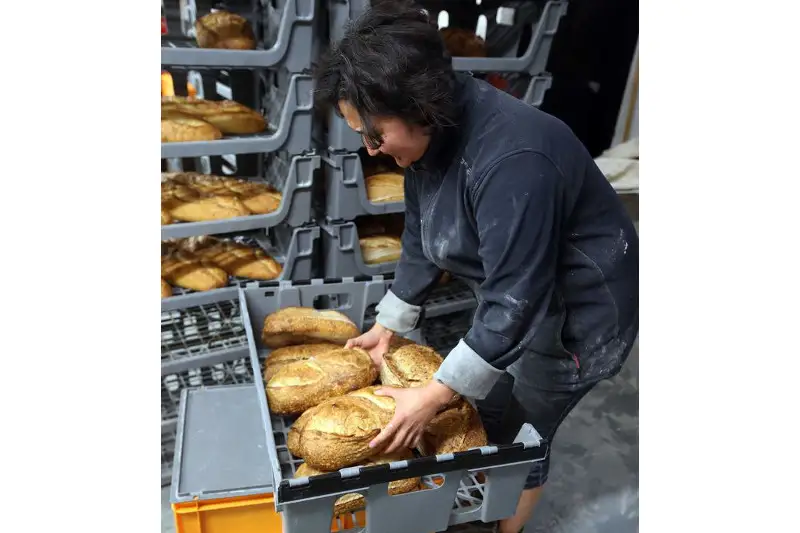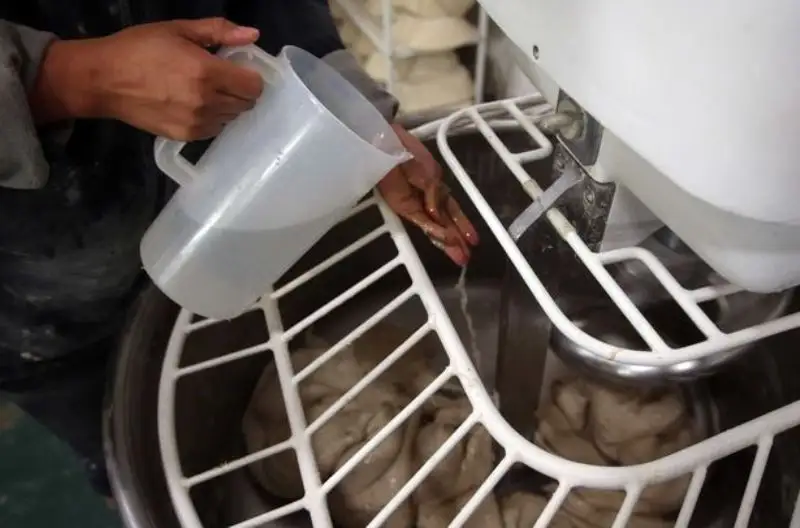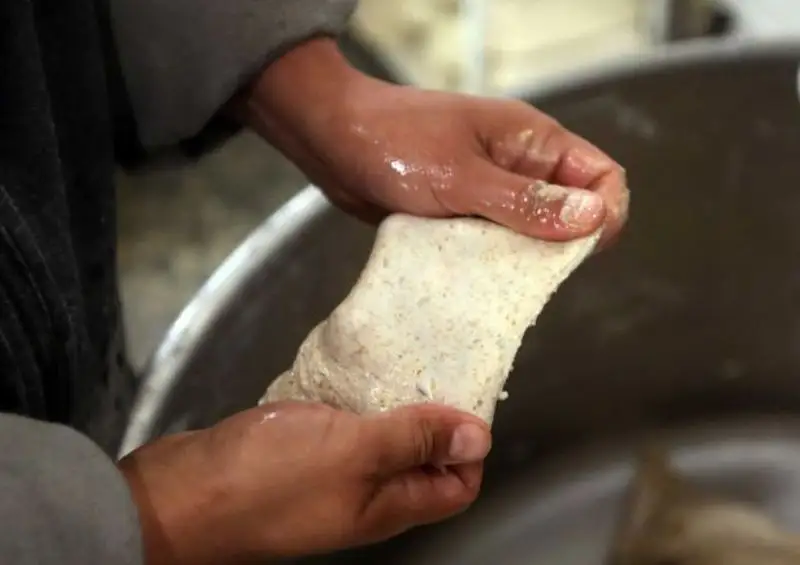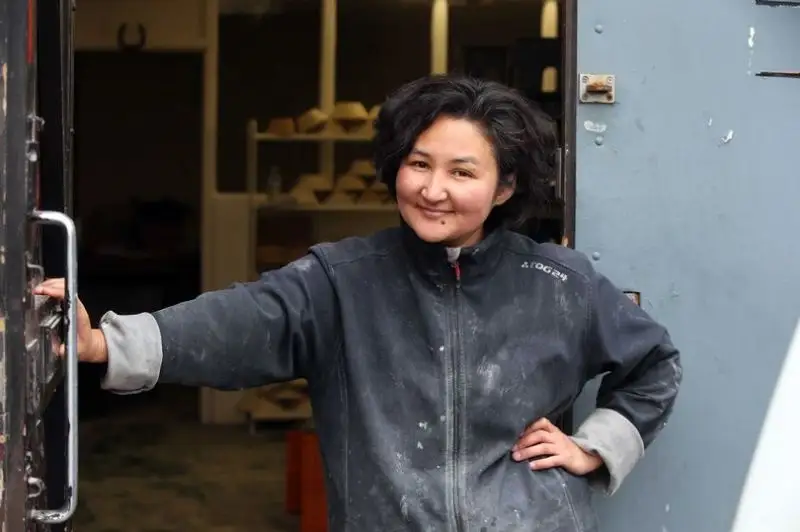Kazakh woman brings love of bread to Newcastle cafes and restaurants

"I'm trying to spread the good bread love everywhere!" Shynara Bakisheva says with a hearty laugh.
It's 9am and the 40-year-old has already been up seven hours' baking another batch of 250-plus sourdough loaves, from British-style bloomers and rolls to continental focaccia, ciabatta, pan marino and baguettes. It's hard to imagine anyone would still be laughing (other than with madness) after working through the night - and in the knowledge they've still got another four or five hours to go before heading home.
But Shynara is one of those rare breed of people who genuinely loves what she does. And she doesn't mind that she's now working longer hours and baking more loaves than ever. It's a sign that her mission to get North Easterners eating better bread isn't falling on deaf ears.
Indeed, just 12 months after launching The Fresh Artisan Bakery Company - otherwise known as FAB - Shynara has already built up an impressive list of customers. They include Newcastle's only Michelin-starred restaurant, House of Tides , as well as The French Quarter on the bottom end of the Westgate Road in the city; Peace and Loaf and Arlo, both in Jesmond; Harrisa Mediterranean Kitchen in Sandyford; and the Cook House in Ouseburn.
Other fans of her produce range from the Gosforth Civic Theatre to the Ouseburn Coffee Company; organic health food store, The Honey Tree in Heaton; Pure Knead in Whitley Bay; the Batch bakery and café in Jesmond; North Shore Coffee in Newcastle; and the Cook and Baker food and homeware shop in Tynemouth. Not bad for a woman who only started baking bread to give her children the best start in life.
Originally hailing from the former Soviet Republic of Kazakhstan - officially the world's largest landlocked country - she had been shocked when she first arrived in the UK in 2005 to discover just how reliant we now are on convenience meals, and how far bread has strayed from its origins as one of the world's oldest and healthiest foods.
At its heart just flour, water and salt - the Egyptians are believed to have introduced yeast to the process about 5,000 years ago - the bread most of us now eat is a nutritional disaster. Manufactured on an industrial scale, it's packed full of additives to make it lighter, higher, and longer lasting. Food, as in real food, Shynara explains, is immensely important in Kazakhstan.
"We are much more in tune with our food. My mum was always in the kitchen. At least four or five times a year we would invite 80 or so people around to our home and have a wonderful feast. Every Kazakhstan home would do the same. There was an element of showing off with the food and making sure everything was very special.
"Everything would be made and cooked fresh, whether it was the bread, meat dishes, savouries or pasta. I couldn't at first comprehend that people here in the UK didn't usually make meals that way.
"People would say to me, ‘you made all this from scratch?' I would think, ‘how else would I prepare food?' I didn't understand this concept of just shoving things in a microwave. I still don't."
British bread in particular was an eye-opener. Bread is a symbol of hospitality in Kazakhstan, and therefore particularly important. "In Russia they have what is known as the ‘bread and salt' custom. When important or admired guests arrive at your home, they are presented with a loaf of bread with a hole in the top in which is placed a holder of salt.
"There is also a traditional Russian greeting of good will which the guest says: ‘bread and salt!' It's a custom that is seen in other former Soviet countries too." The tradition recognises the importance of bread as a basic daily food - it has long been known as the staff of life - and salt for flavouring. Salt was once so important that it was traded and used as currency.
Shynara says that during the Soviet era bread was made to a standard recipe across the union. "There was a basic slow fermented loaf that was made and sold everywhere. It was actually very good. The one thing there was never a shortage of in the Soviet era was bread!"
Born and raised in the coal mining city of Karaganda, 120 miles from the capital Astana, Shynara worked as a Russian-English interpreter for the Chevron oil and gas corporation before meeting her husband, Russ Clewlow. A Newcastle-based architect, the couple have two children, Alika, 12, and Luka, 10, who Shynara refers to as her ‘budding assistant bakers.'
It is fitting that, as it was her children who ignited her passion for baking, they should help her out at the small bakery unit she rents in Wallsend, North Tyneside.
Shynara didn't just move from home baking to running her own commercial operation overnight, however. She went on a bread making course in Scotland "where I met lots of interesting people and learnt a lot, but still came home with more questions than answers".
So in 2014 she enrolled on a 10-month long advanced diploma in artisan baking with the School of Artisan Food in Welbeck, Nottinghamshire. Following her graduation she worked for Fenwick in Newcastle and at the Vallum food hub in the Tyne Valley, before deciding last year to go it alone.
Now she is supplying around 20 major outlets with her sourdough breads and pastries, many of which have been individually developed for her customers. "The House of Tides wanted a local bread made with local ingredients, so I developed the Country Loaf which is made using Gilchesters Organics' flour from Northumberland.
"I developed it, they liked the quality and the consistency, and now it's on the menu. I like to think I take a unique and novel approach to every customer. It is important, as I think what they are all doing is fantastic. They are all passionate about what they do too. I love the fact that I can sit down with my customers, break bread with them, discuss things and have a laugh."
Shynara mostly bakes using sourdough - a leaven that harnesses the power of wild yeasts in the time honoured way discovered by our ancient ancestors, making it more easily digestible and nutritious than the mass produced standard loaves we have become used to, and which many believe have helped fuel the rise in gluten intolerance and other food allergies.
"My breads only use three main ingredients, flour, water and salt, and have a lovely tangy flavour." She adds extra ingredients to some: rosemary, seeds, wild garlic when in season, onion, tomato, and sweet potato are some of her favourites.
What does she like about baking: "The instant gratification. If you are an architect it can take years to see something you have designed and worked on come to fruition. As a baker there is immense satisfaction in being able to watch as your work grows and develops.
"There is also that nostalgia moment. Everyone has that when they go ‘ooh, yes, fresh bread,' as the smell hits them and they go all dreamy.
"It is also about wanting to be the best. There is a certain chemistry to it, knowing when to feed the dough and when to work it. Then when you tip the fermented dough on to the bench a little bell will ring in your head and you will say,' that's a nice dough today.' Every day is different, even if you follow the recipe. Even a change in temperature can made a difference to the dough."
It's all a long way from her previous life as an interpreter for a multinational oil and gas giant. So what does her family back in Kazakhstan think of her running her own bakery business? They can't get over me making bread. I used to be the one into make-up, manicures and high heels, and now I'm up to my elbows every day in flour and dough! But I wouldn't have it any other way."
